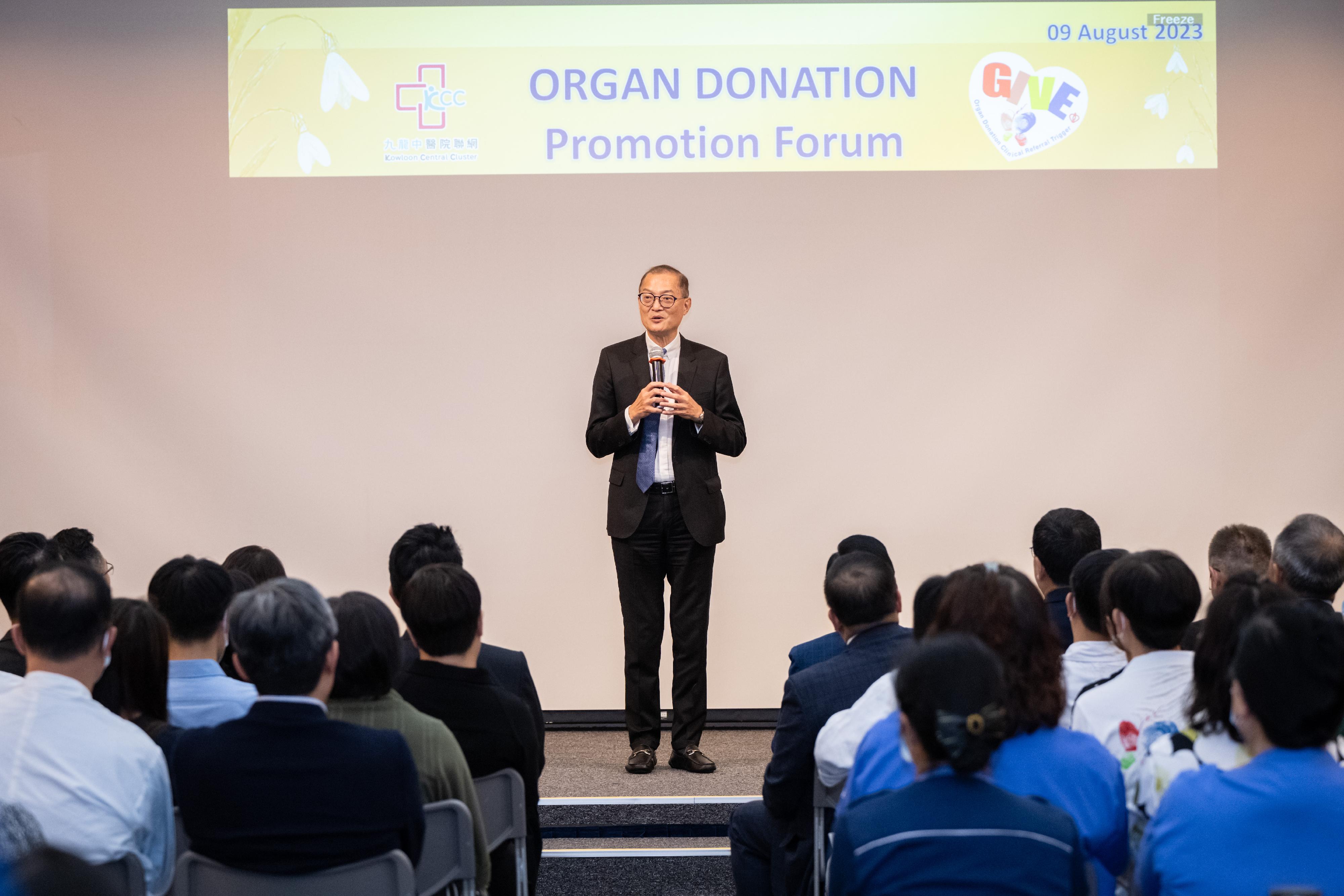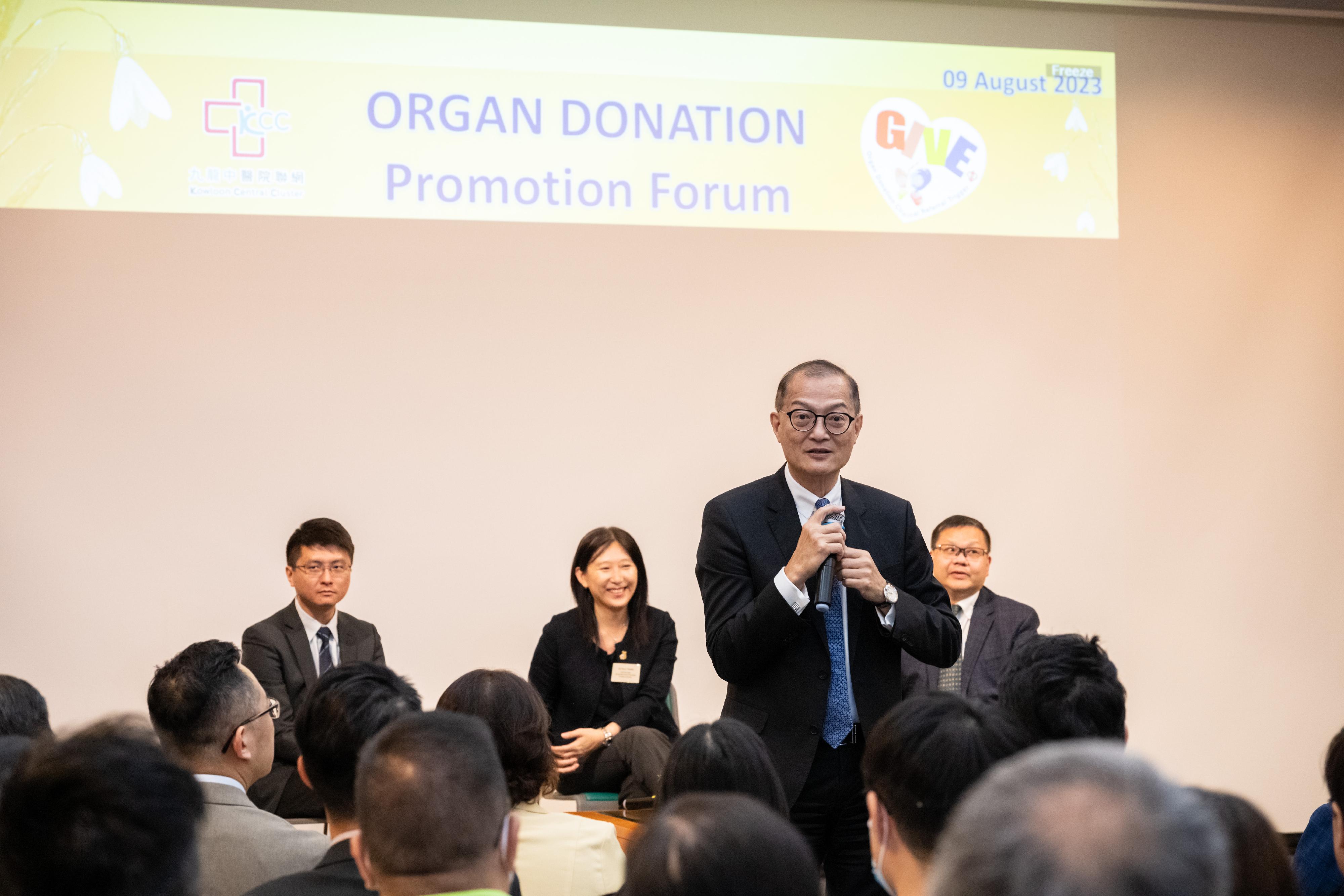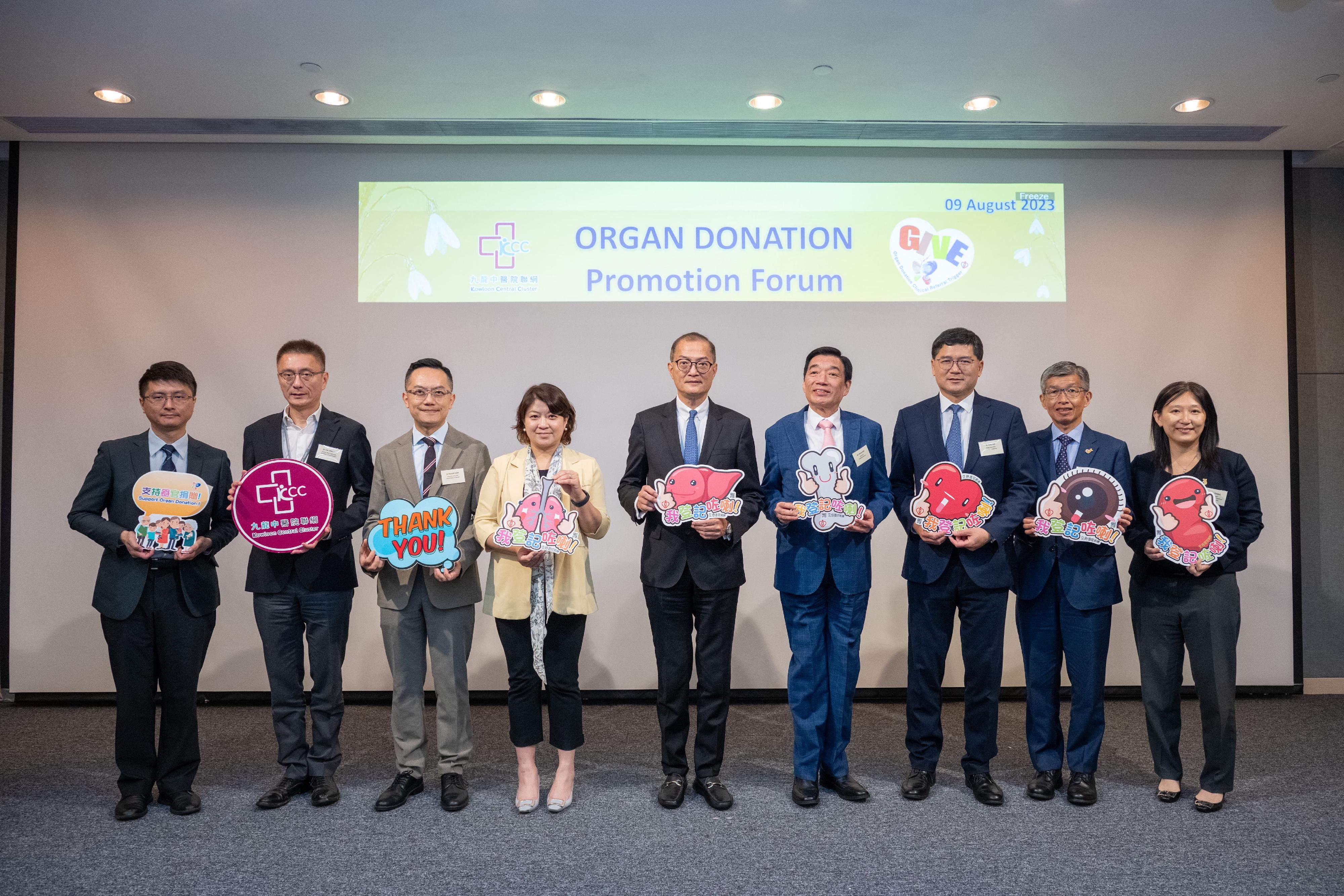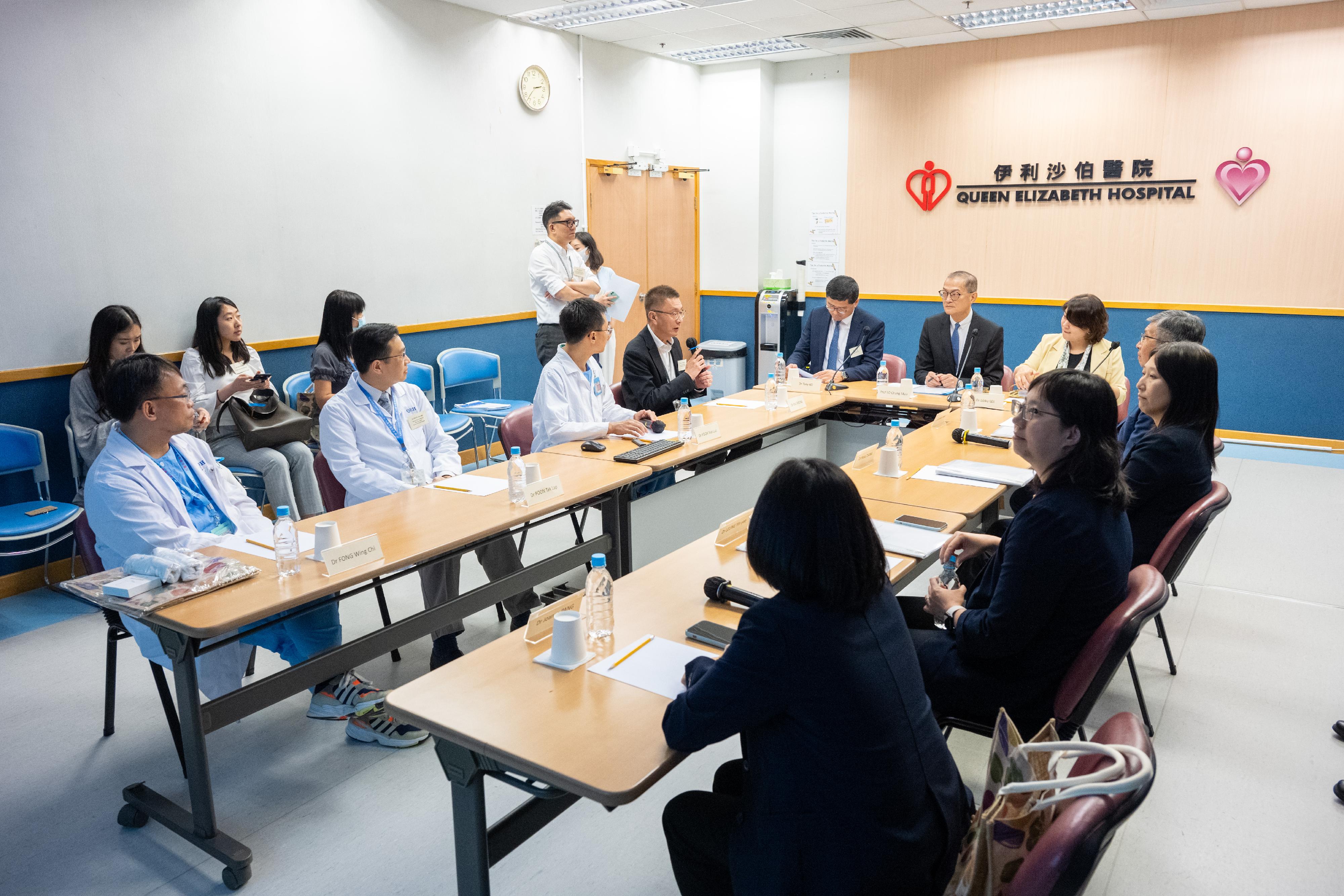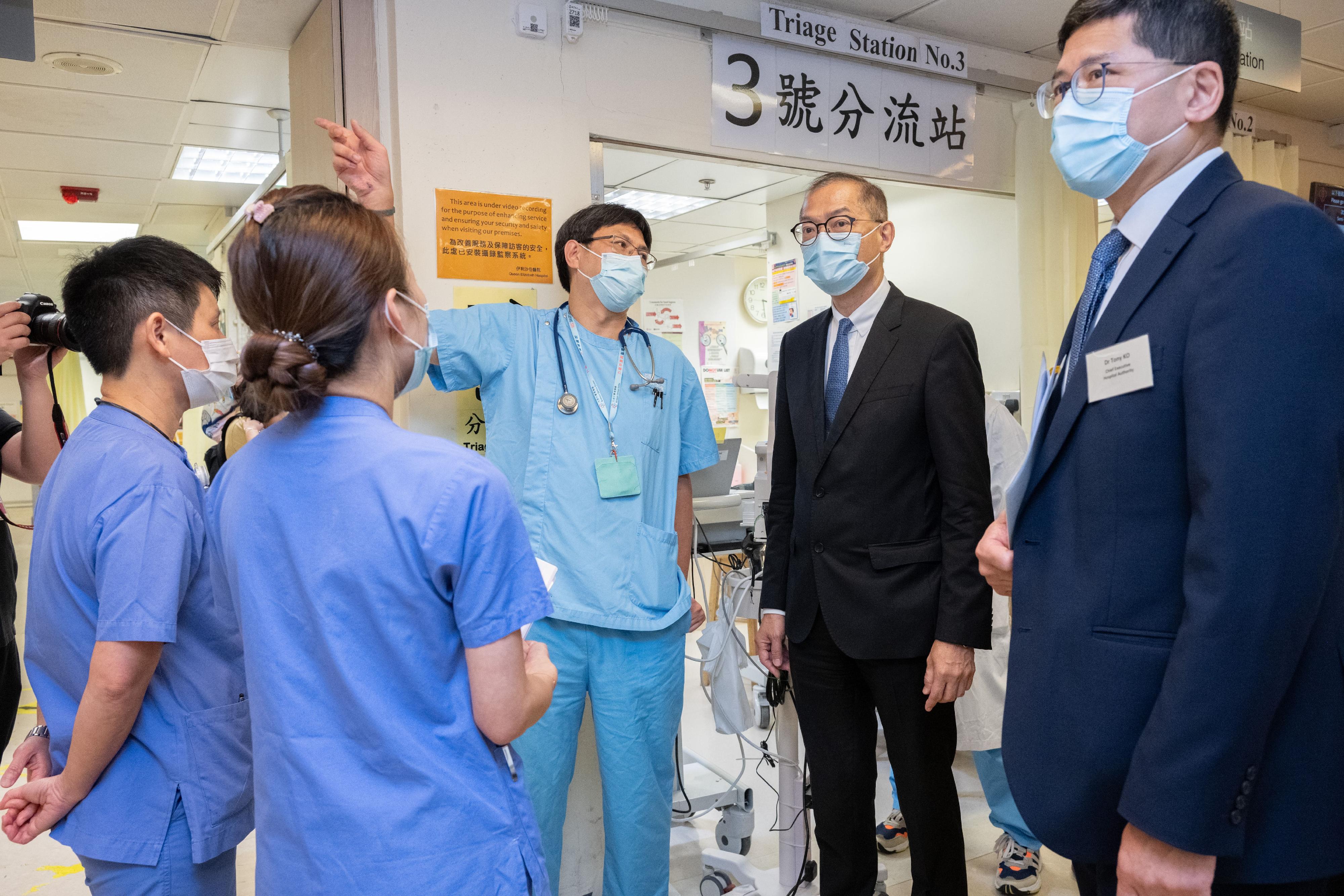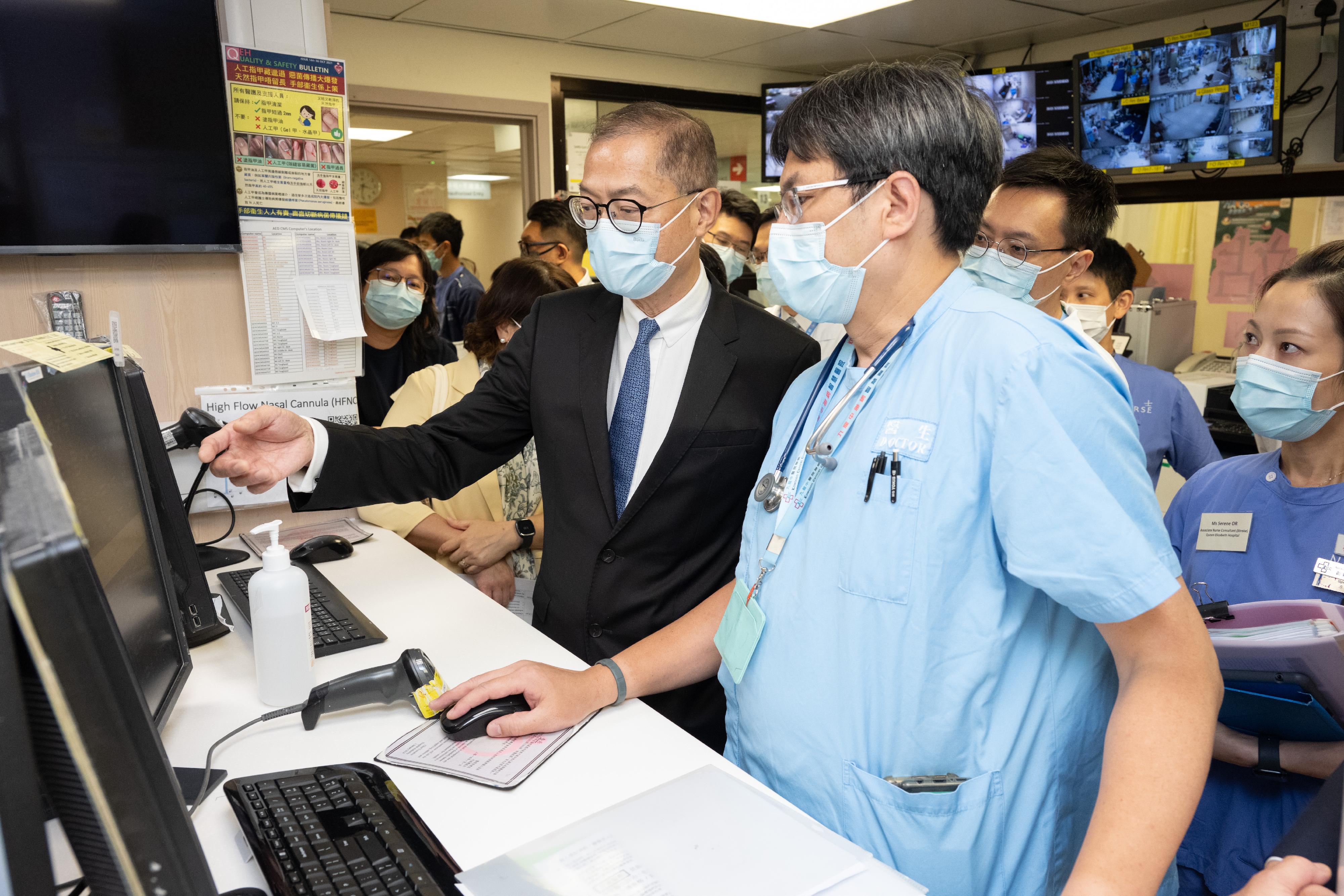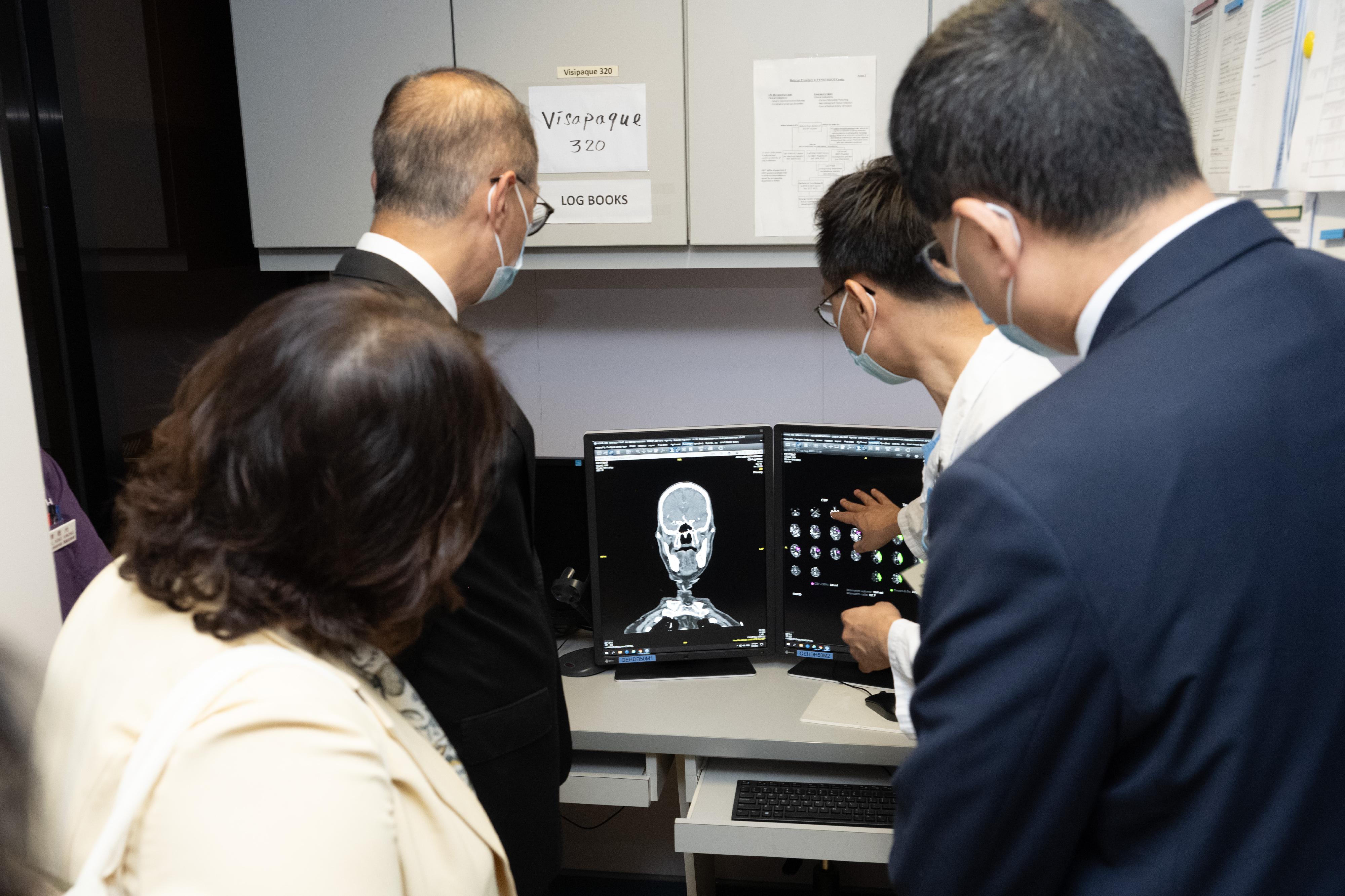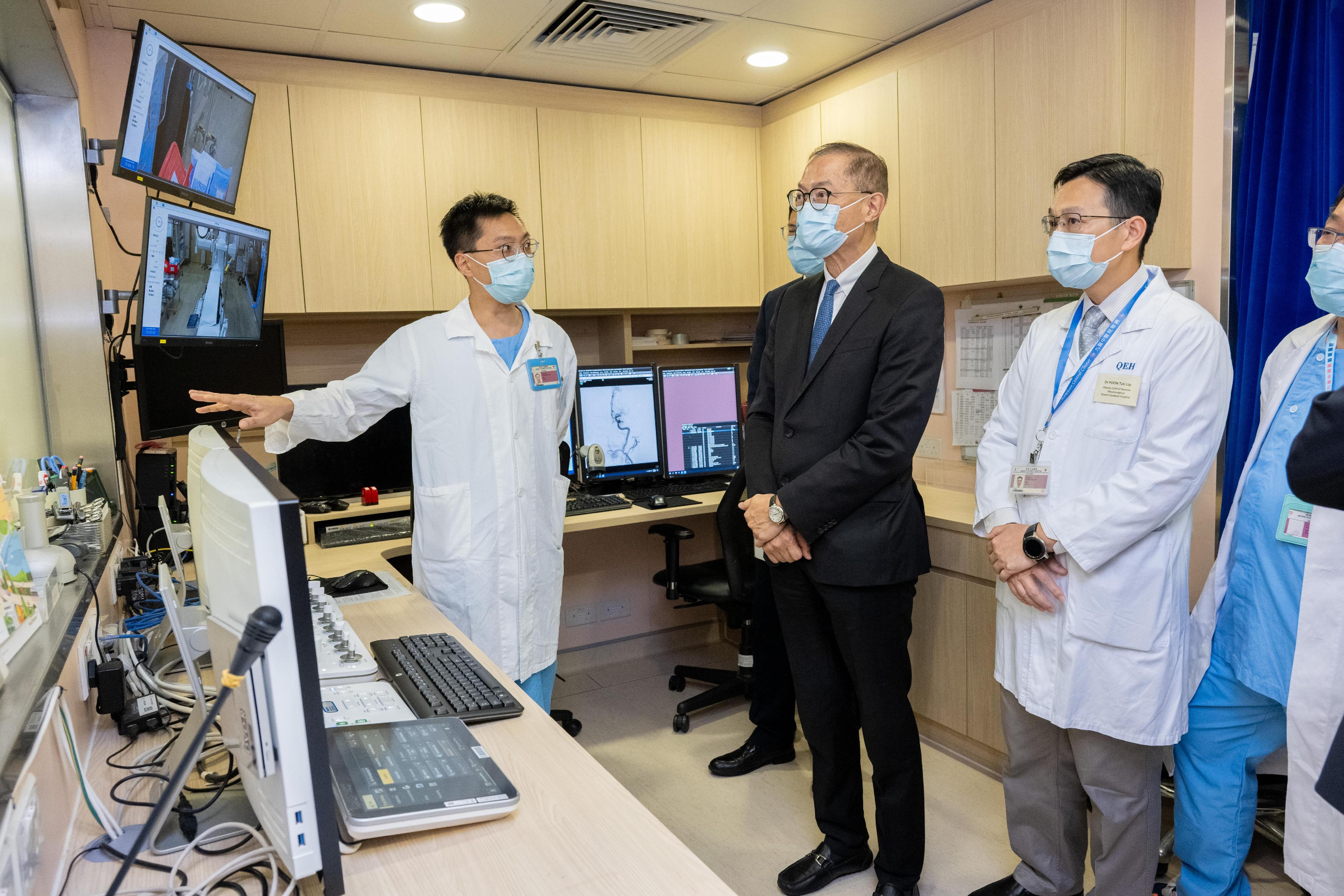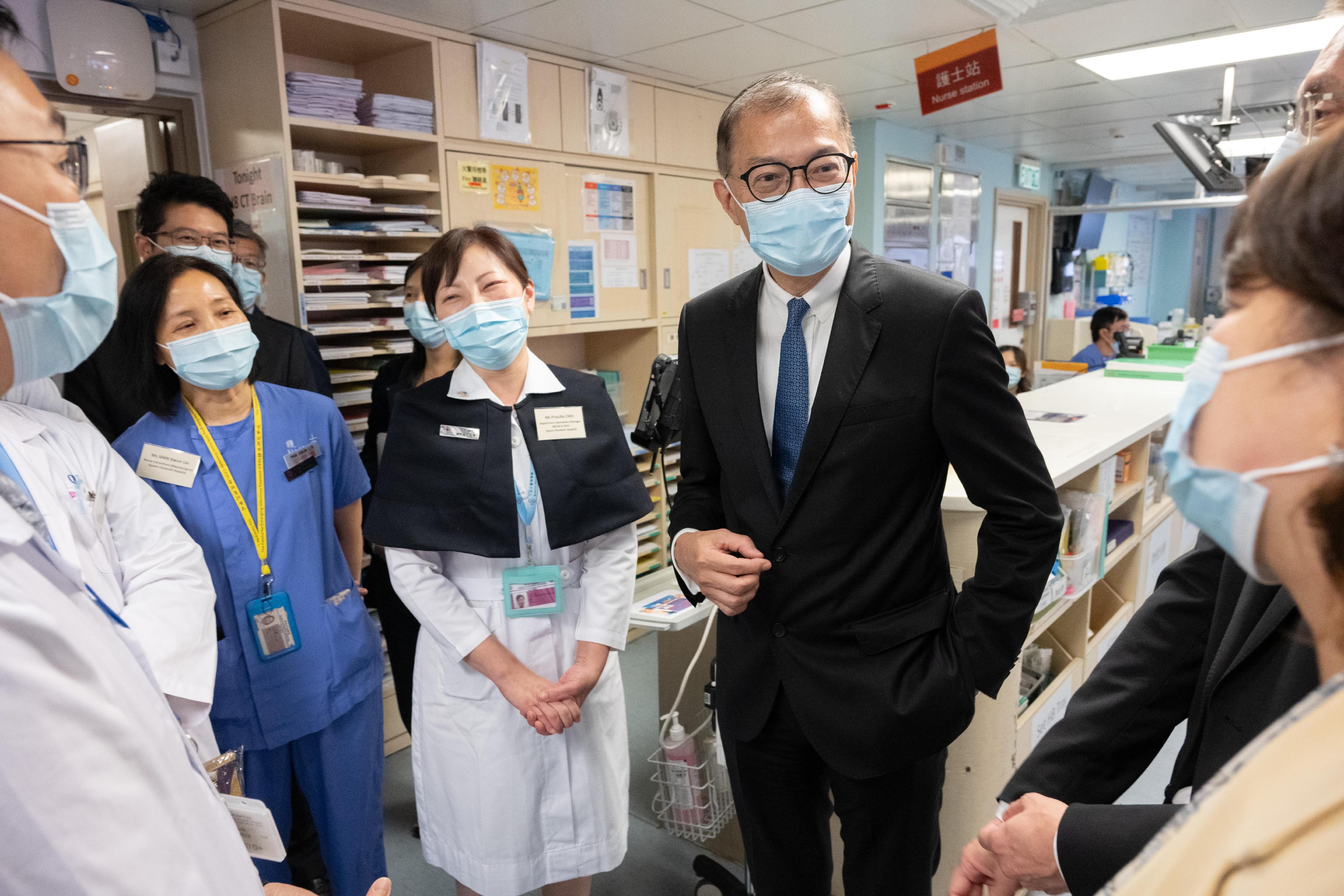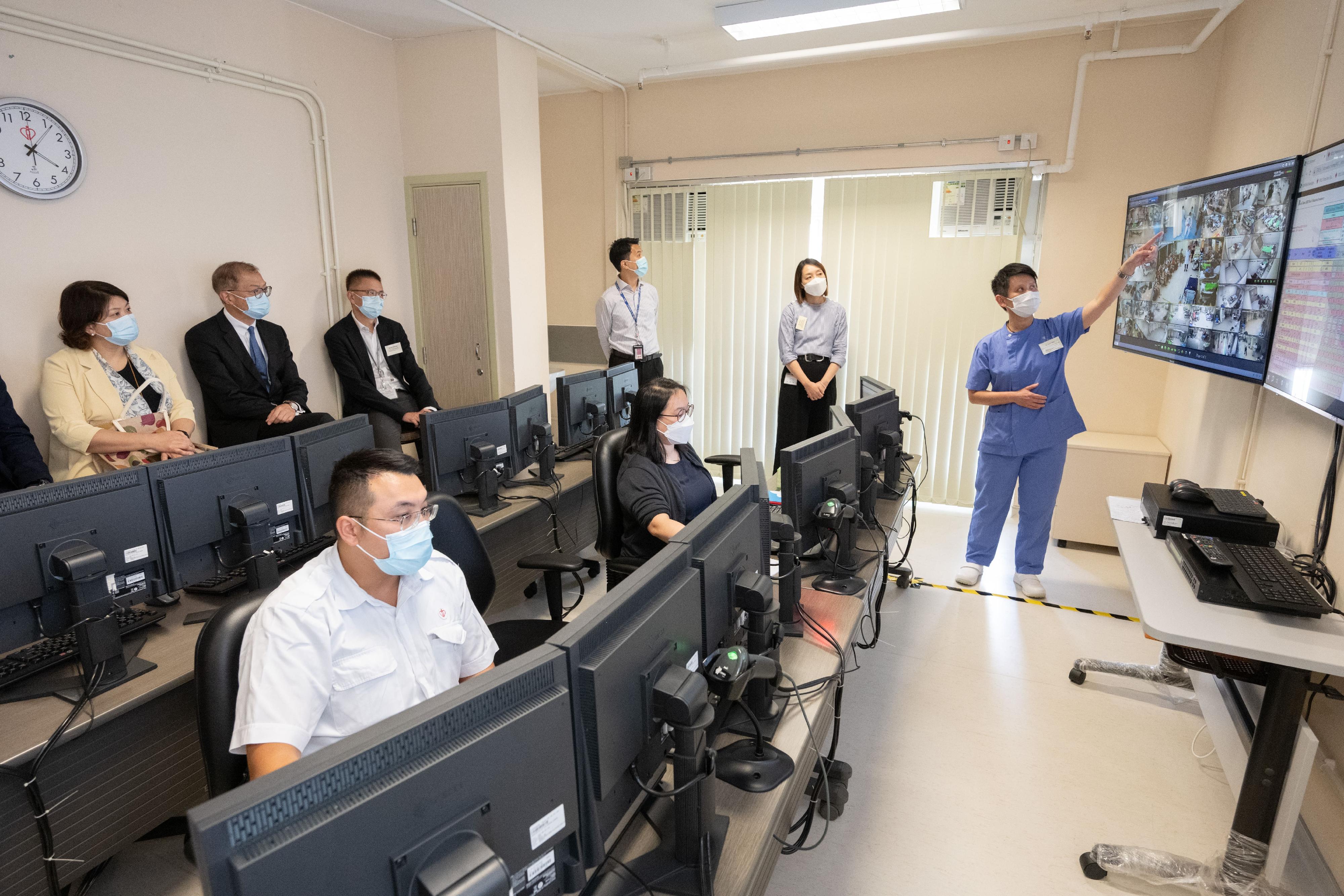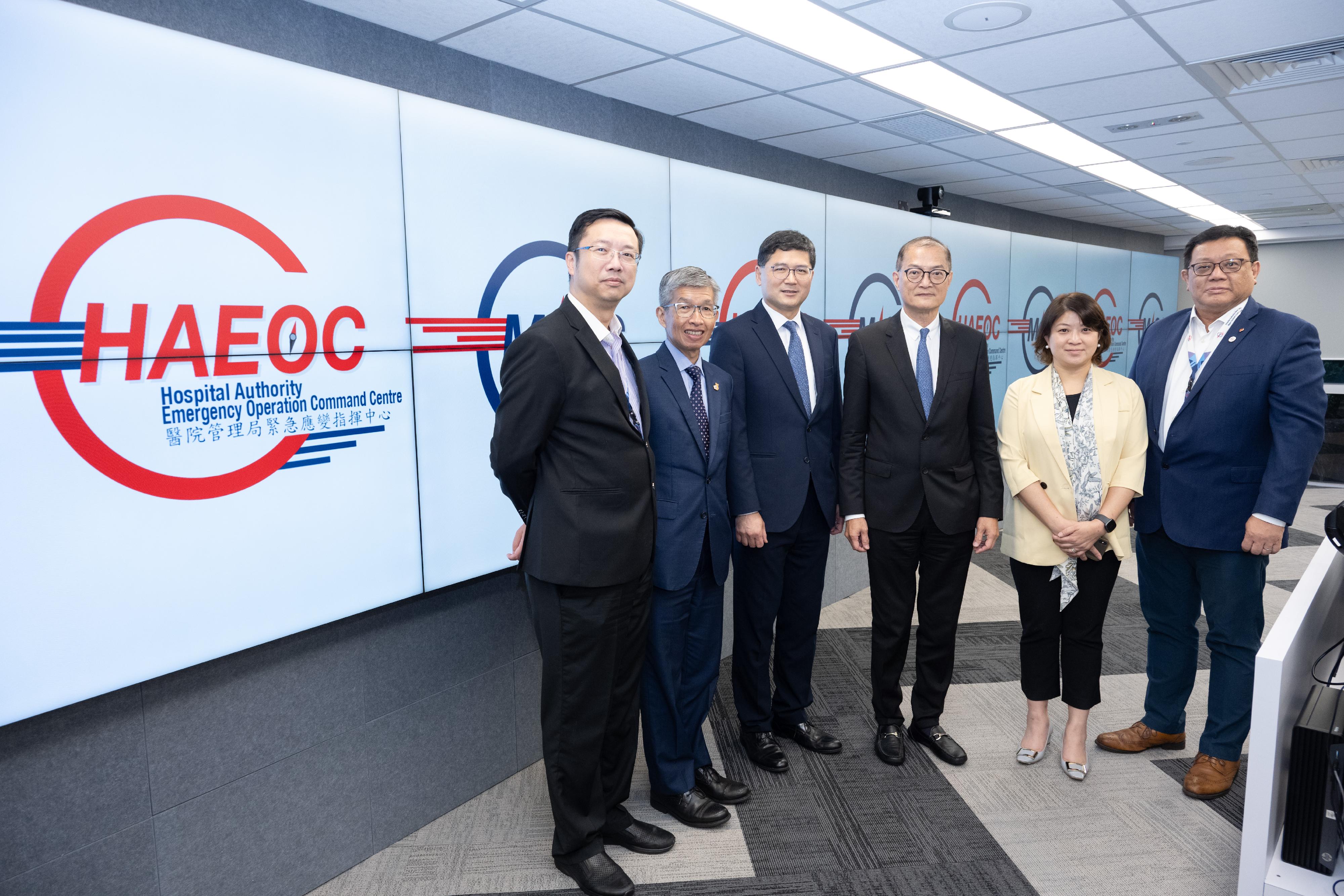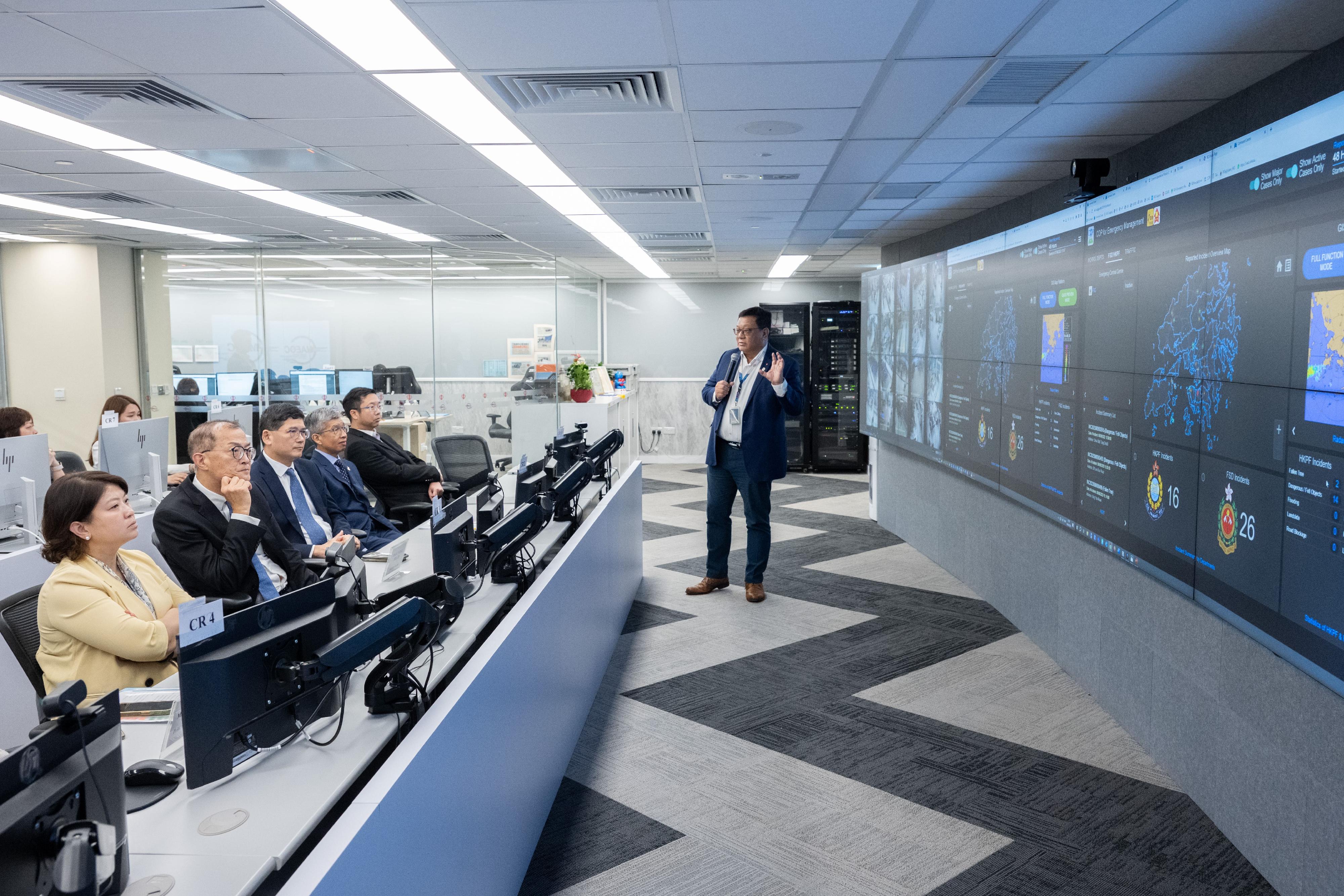Secretary for Health attends Organ Donation Promotion Forum and inspects Queen Elizabeth Hospital's work on establishment of Integrated Neuroscience Centre, Hospital Authority's Major Incident Control Centre and Emergency Operation Command (with photos)
******************************************************************************************
Accompanied by the Chairman of the HA, Mr Henry Fan, and the Chief Executive of the HA, Dr Tony Ko, Professor Lo and the Under Secretary for Health, Dr Libby Lee, attended the Organ Donation Promotion Forum arranged for healthcare staff of the Kowloon Central Cluster of the HA at QEH. At the Forum, representatives of the HA Head Office, organ transplant experts and representatives from the Department of Health introduced the organ transplant mechanism of the Mainland, the organ transplant services and the operation of the Centralised Organ Donation Register (CODR) in Hong Kong, as well as the Government's efforts to promote organ donation respectively.
Addressing the Forum, Professor Lo said, "Organ donation is a selfless and generous act of benevolence to save lives. I have every confidence that frontline healthcare staff will set a good example by devoting their support for organ donation and encouraging their relatives and friends to register on the CODR. Furthermore, the Government fully backs the HA in strengthening staff training to solidify the role of healthcare professionals in pushing ahead with the work on organ donation and transplant, such that they can actively give full play to cultivate an environment favouring registration for organ donation registration, thereby drumming up society’s support for organ donation at large."
Professor Lo added, "At present, over 2 600 patients suffering from organ failure have been waiting for organ transplant in Hong Kong, while there are only some 30 deceased donors each year. A downward trend is observed in recent years under the impact of COVID-19 epidemic, with the supply of organs falling far behind the demand. In this connection, we are actively exploring with relevant Mainland authorities the establishment of a standing organ transplant mutual assistance mechanism, with a view to giving patients of the two places an extra chance for a new life through such cross-boundary mutual assistance."
The Organ Donation Promotion Forums are being held in seven hospital clusters and the HA Head Office from August onwards for several weeks in a row.
Professor Lo proceeded to inspect QEH's work on the establishment of the Kowloon Central Cluster Integrated Neuroscience Centre and learnt about the multi-disciplinary team's support for patients suffering from complex neurological diseases and provision of one-stop services in diagnosis, treatment and rehabilitation. The Chief Executive set out in last year's Policy Address that the HA would set up integrated neuroscience centres. QEH is one of the hospitals which took the lead to set up such centres.
Separately, Professor Lo also visited the Hospital Command Centre in QEH and received a briefing by healthcare staff on the hospital's daily management of clinical operations, bed turnover and resources allocation as well as how the hospital leverages technology to enhance efficiency and improve treatment procedures for patients, thus driving the development of Smart Hospital in the long run.
During his visit to the HA's HOMICC and HAEOC afterwards, Professor Lo received a briefing by staff on the HA's three-level emergency response system, and gained a better understanding of how the HOMICC maintains close communication with relevant government departments when major incidents occur (including civil disasters, infectious diseases and other major crises and events) to keep abreast of the latest situation and co-ordinate cross-cluster allocation of resources for prompt provision of comprehensive emergency services to the injured. In addition, he also learnt from the staff about how the HAEOC made use of real-time data of hospitals during the COVID-19 epidemic to directly mobilise resources including beds and manpower and transfer patients to appropriate hospitals or relevant facilities for treatment by adopting a "seven-in-one" model steering cross-cluster co-ordination.
Professor Lo said, "Having handled various major incidents since its inception, the round-the-clock operation of the MICC during the epidemic plays an important part in Hong Kong's victory over the epidemic. The experiences gained during the epidemic are conducive to enhancing the contingency capability of the healthcare system of Hong Kong for better preparation for any possible major incident that may happen in the future."
Professor Lo expressed his gratitude to the HA for maintaining close collaboration with various government departments in safeguarding the health of Hong Kong people over the years. He was also proud of the endeavour and contributions of all healthcare personnel. He said that the Government will continue to fully support the work of the HA to ensure the sustainable development of the public healthcare system in Hong Kong.
Ends/Wednesday, August 9, 2023
Issued at HKT 19:55
Issued at HKT 19:55
NNNN





